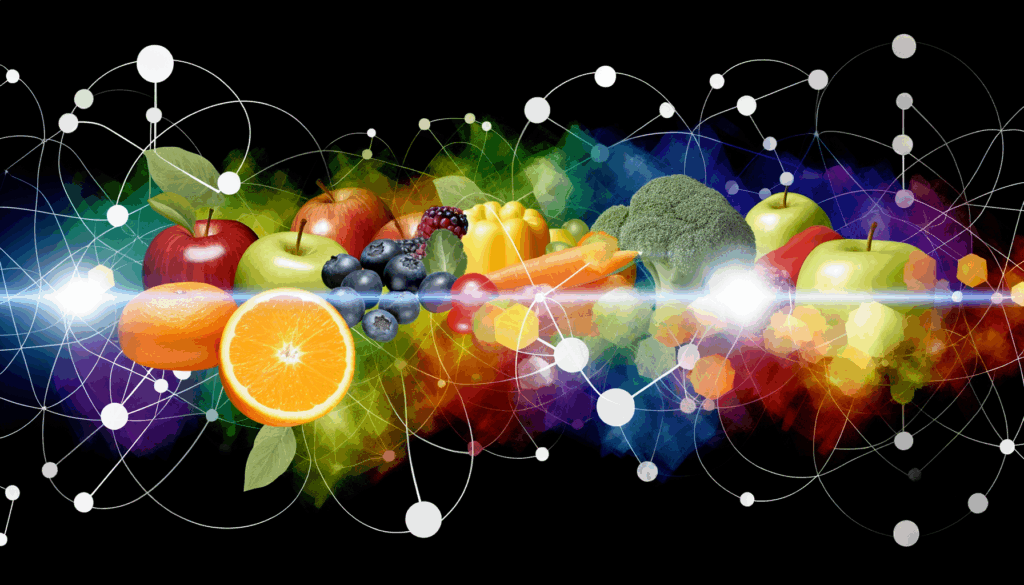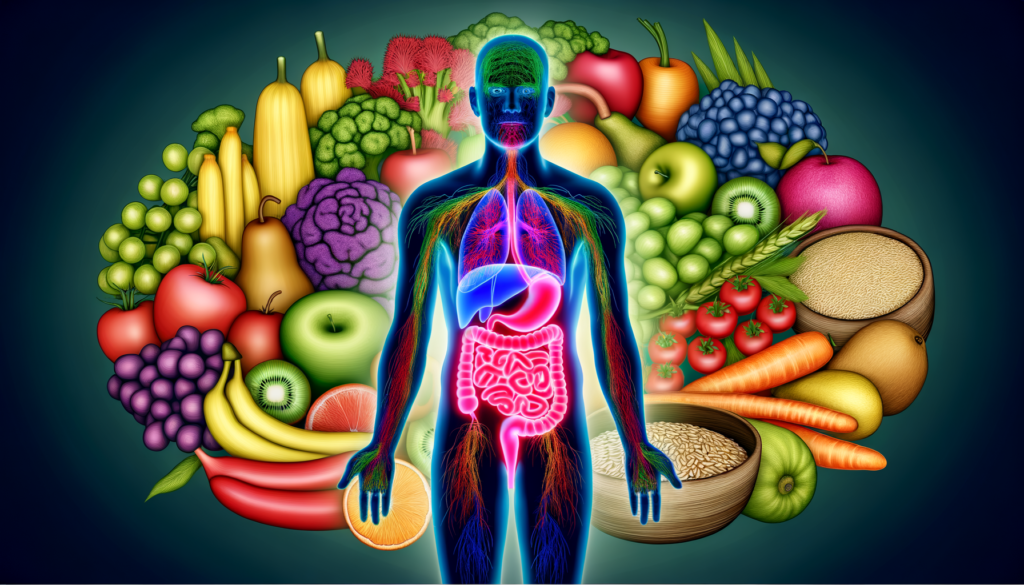Revolutionizing Nutrition Tracking with Blockchain Technology
In the modern era, transparency and trust in the food industry are more crucial than ever. With the rise of blockchain technology, the way we track and verify the origin, quality, and safety of food products is undergoing a significant transformation. Here, we delve into how integrating blockchain can enhance nutrition tracking, ensuring a more transparent and reliable food supply chain.
The Power of Blockchain in Food Tracking
Blockchain technology offers a robust solution for enhancing transparency and traceability in the food supply chain. Here are some key ways blockchain is making a difference:
Real-Time Traceability
One of the most significant benefits of blockchain is its ability to provide real-time traceability. Every transaction within the blockchain network is recorded instantly and stored securely, allowing the journey of a food item from farm to table to be traced in real-time. This feature is particularly useful for consumers who want to know the exact origin and history of their food, as seen in initiatives by companies like Ripe.io and Provenance.
Immutable Records
Blockchain operates on a decentralized ledger system, making the records immutable. Once information is entered into the blockchain, it cannot be tampered with or altered, ensuring the data’s integrity. This is critical in preventing fraudulent activities and ensuring the quality and safety of products. For instance, if a farmer provides a certificate of organic food, verified by an authorized agency, that certificate cannot be altered later on.
Enhanced Transparency
The decentralized nature of blockchain fosters transparency across the entire supply chain. Each participant in the network can access the data and verify the authenticity of the products. This level of transparency builds trust among consumers and stakeholders, enhancing the overall credibility of the supply chain. Companies like Trusty have adopted blockchain to provide end-to-end transparency, tracking over 400,000 transactions daily.
Efficient Recall Process
In the event of a food safety issue, blockchain can significantly speed up the recall process. By tracing the product’s journey through the supply chain, blockchain can quickly identify where the problem originated and which products need to be recalled. This minimizes the risk to consumers and reduces the financial impact on businesses. For example, Silal Fresh transformed its approach to supply chain management using blockchain, improving traceability and recall efficiency.
Verification of Certifications
For consumers seeking organic, fair-trade, or other certified products, blockchain provides a reliable way to verify these claims. By recording each step of the production process, blockchain can validate the certifications, giving consumers confidence in the authenticity of the products they purchase. This is particularly important for consumers who prioritize sustainability and ethical sourcing.
Real-World Examples and Case Studies
Several companies and initiatives have already begun leveraging blockchain to enhance food transparency and safety.
Ripe.io
Ripe.io uses blockchain technology to improve the transparency and traceability of food. It allows consumers to trace the origin of their food and provides reliable information about the product’s journey from farm to table. Consumers can access this information through a mobile app, fostering a connection between consumers and their food.
Provenance
Provenance creates a digital record for each food product on the blockchain, including information about its origin, production process, and ingredients. This makes it easily verifiable and accessible to customers. Provenance has tracked over 1 million products, demonstrating the scalability and effectiveness of blockchain in food tracking.
Silal Fresh
Silal Fresh, the fresh produce division of Silal, adopted a blockchain-based management system to improve traceability. By integrating blockchain, they were able to record every touchpoint of a product into the ledger, providing a clear view of the product’s journey. This significantly improved identifying and flagging delays in their deliveries and increased consumer trust and brand loyalty.
How Blockchain Enhances Nutrition Tracking
Detailed Product Information
Blockchain technology allows for the creation of a comprehensive digital record of a food product’s journey. This includes crucial details like ingredient origins, harvest dates, transportation, and storage conditions. Consumers can access this information through QR codes or smartphone apps, providing greater transparency and assurance about the food they consume.
Consumer Engagement
By providing consumers with detailed information about the origins and journey of their food, blockchain can enhance consumer engagement. Consumers can scan a QR code on the product to access its complete history, fostering a connection between consumers and their food. This can lead to increased consumer loyalty and satisfaction.
Regulatory Compliance
Blockchain can facilitate regulatory compliance by providing a transparent, immutable record of all transactions and activities. This makes it easier for businesses to demonstrate compliance with food safety regulations, reducing the risk of penalties and enhancing their reputation. Companies like Trusty and Provenance have successfully implemented blockchain to meet regulatory standards.
Streamlining Operations and Ensuring Fair Compensation
Streamlined Operations
Blockchain can help streamline operations and reduce inefficiencies in the agriculture supply chain. By providing a transparent view of the supply chain, businesses can identify bottlenecks, optimize resources, and enhance their operational efficiency. This can lead to cost savings and improved profitability. For instance, the study in Turkey on blockchain-based food tracking showed significant improvements in latency and throughput, making the system more efficient.
Fair Compensation for Farmers
Blockchain can ensure fair compensation for farmers by providing a transparent record of transactions. This allows farmers to verify that they are being paid fairly for their produce and can help to build trust between farmers and other stakeholders in the supply chain. The use of smart contracts and IoT devices can automate and monitor the entire process from planting to delivery, ensuring fairness and transparency.
Conclusion and Future Outlook
Blockchain technology is revolutionizing the way we track and verify the origin, quality, and safety of food products. By providing real-time traceability, immutable records, and enhanced transparency, blockchain fosters trust, improves efficiency, and ensures the safety and quality of food products.
As the demand for transparency and sustainability in the food industry continues to grow, blockchain is poised to play a significant role in shaping the future of the food supply chain. Whether you are a consumer seeking to understand the journey of your food or a business looking to enhance your supply chain operations, integrating blockchain can provide unparalleled benefits.
For those interested in leveraging blockchain for nutrition tracking, tools like Calorie Calculator Cloud can offer valuable insights into nutritional content, while blockchain technology ensures the transparency and authenticity of the food itself.
Take the First Step
If you are considering how to integrate blockchain into your nutrition tracking or supply chain management, now is the time to act. With the potential to revolutionize food safety, transparency, and consumer trust, blockchain is an investment worth making.
Explore the various blockchain solutions available, such as those offered by Ripe.io, Provenance, and Trusty, and see how they can be tailored to your specific needs.
In conclusion, the future of nutrition tracking and food supply chain management is here, and it is built on the foundation of blockchain technology. Embrace this innovation to ensure a safer, more transparent, and more sustainable food system for all.
“`







